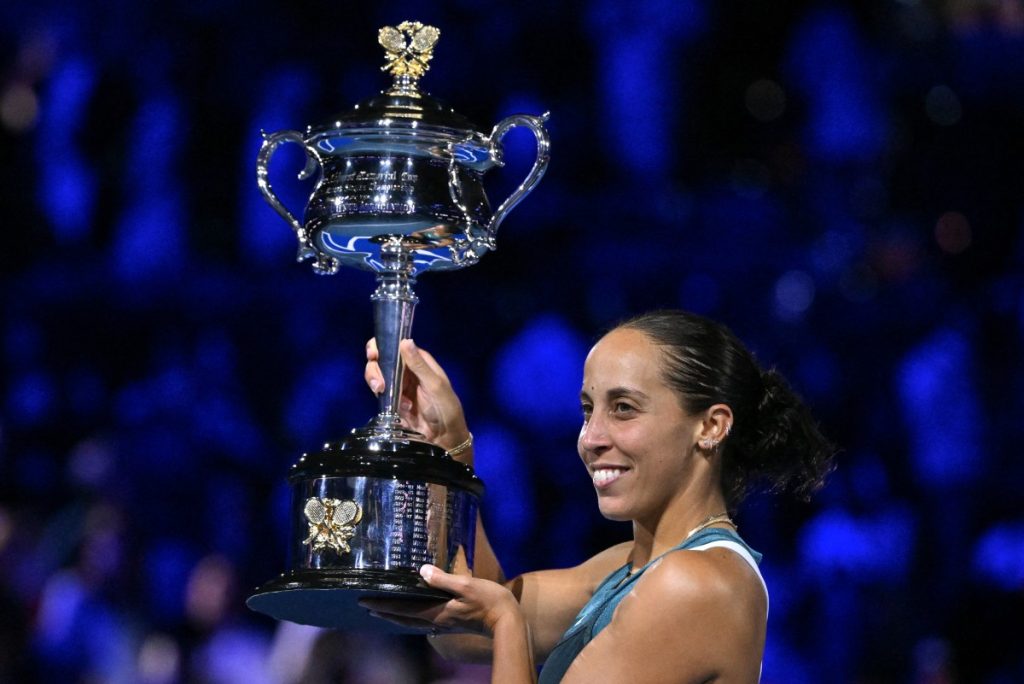Underdog Madison Keys defeated Aryna Sabalenka 6-3, 2-6, 7-5 in the Australian Open final on Saturday, to clinch her first Grand Slam title at 29.
The American Keys halted world number one Sabalenka’s hopes of becoming the first woman in 26 years to win a third successive singles title at Melbourne Park.
After enduring a strong comeback from the Belarusian two-time defending champion, keys erupted in joy and shed tears of happiness upon winning the championship.
Sabalenka, who had won titles in 2023 and 2024, buried her face in a towel as her impressive 20-match winning streak in Melbourne ended.
For the 19th-seeded Keys, this victory is the achievement of a 15-year journey from being a teenage sensation to a major champion. The American was once regarded as a future world number one after she won her first WTA Tour match at just 14 years old.
Ten years ago, as a 19-year-old, she reached her first major semi-final at Melbourne Park, but after a decade, she can finally proudly declare herself a Grand Slam champion.

Keys becomes the fourth oldest player to win a major for the first time since the Open Era began in 1968. In just her second Grand Slam final, Keys started strongly.
Despite her strapped left thigh, Keys was unfazed and played exceptional tennis, putting pressure on Sabalenka. Keys obtained an early break with the assistance of two double faults from Sabalenka.
Sabalenka struggled to find her rhythm against Keys, who successfully landed 86 per cent of her first serves in the set. A third double fault from Sabalenka allowed Keys to earn another break and surge ahead to a 5-1 lead.
Though Sabalenka saved a set point and managed to reclaim one of the breaks, her number of errors was increasing, and Keys, who struck 11 winners compared to four, took the first set in 35 minutes.
Sabalenka, known for her resilience, had previously lost the first set in the 2023 final against Elena Rybakina before winning. Additionally, she had faced a 6-0 loss in the first set against Keys in the 2023 US Open semi-final before returning to secure a finals berth.
This prior outcome might have been on the players’ minds as Sabalenka began to change the momentum in the second set, breaking serve in the third game and going ahead 3-1. She followed that with another break through a brilliant cross-court shot and levelled the match after spending an hour and 20 minutes on the court.

Sabalenka was hitting the ball much more effectively by this point, and a younger version of Keys might have faltered. However, this more experienced Keys, who fought hard to defeat Iga Swiatek in a tense 10-point final set tiebreak in the semi-finals, showcased her resilience.
She held serve from 0-30 in the third game, keeping the match on serve as the final set turned into a fierce battle of baseline hitting with neither player holding back.
This intense back-and-forth continued until 5-6 when Sabalenka served to push the match into a final set tiebreak.
Keys created two match points and clinched the championship on her second, with her 29th winner after a match lasting 2 hours and 2 minutes.


